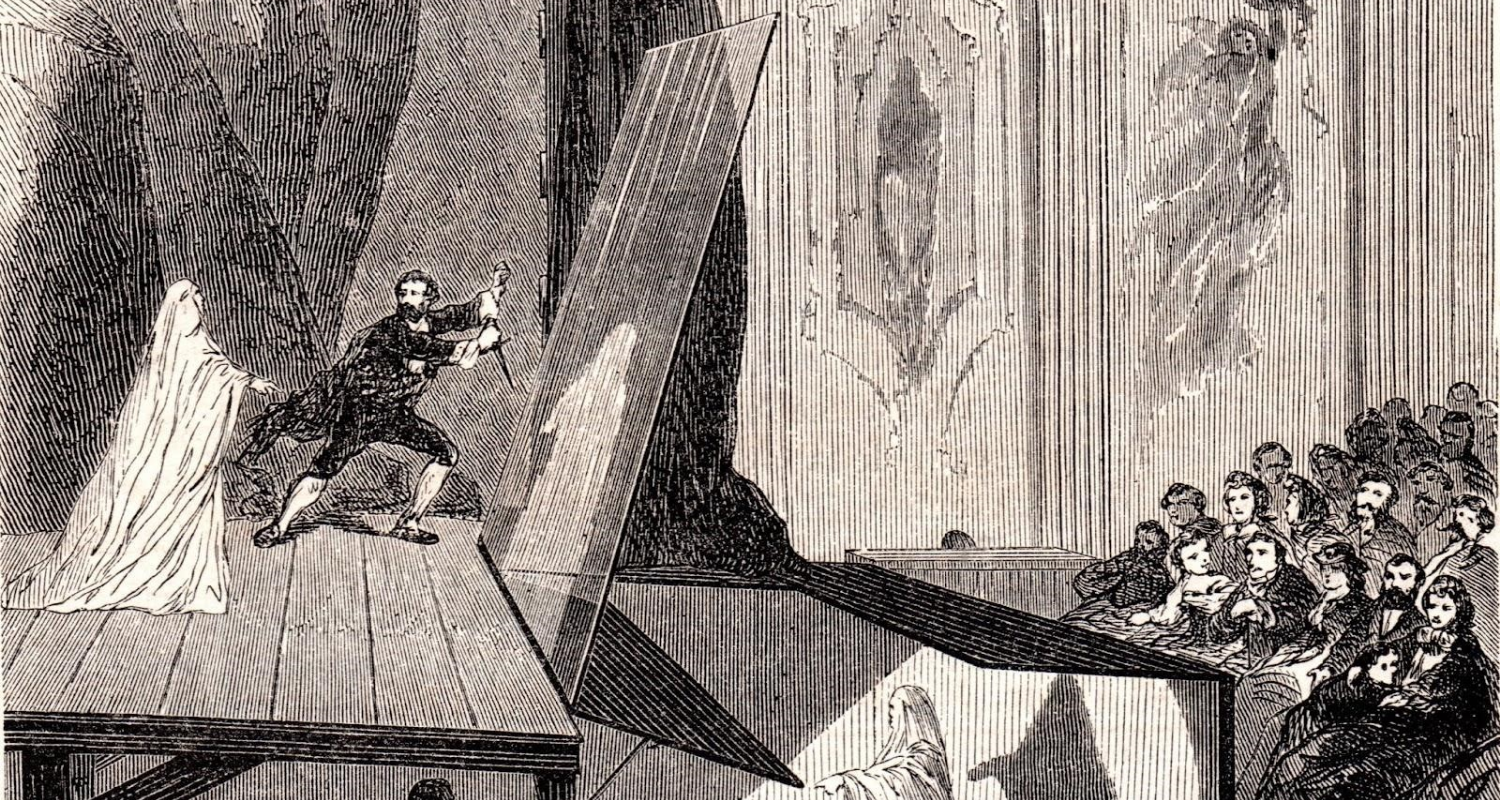Unless you were living under a rock in 1862, you were aware of the ghost that was haunting theatres far and wide. Although this wasn’t quite a “Phantom of the Opera ” situation – this ghost was the cutting edge of theatre technology, an illusion called Pepper’s Ghost.
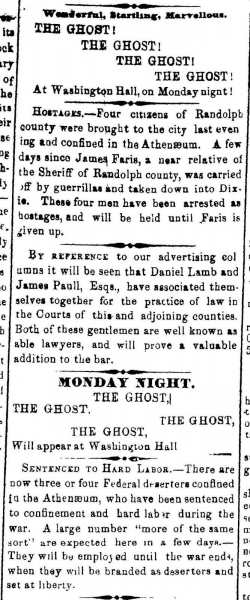
The Secret to the Ghost
While the concept for Pepper’s Ghost had been around since the 1500s, John Henry Pepper perfected the illusion that would be initially deployed in an 1862 production of Charles Dickens’ play, The Haunted Man. The illusion was deceptively simple: a large plate of glass was suspended above the stage and below, hidden from the view of the audience a bright light was shone on a figure that would be reflected. The audience would perceive a semi-transparent form that could move across the stage and through scenery and other actors. [1]
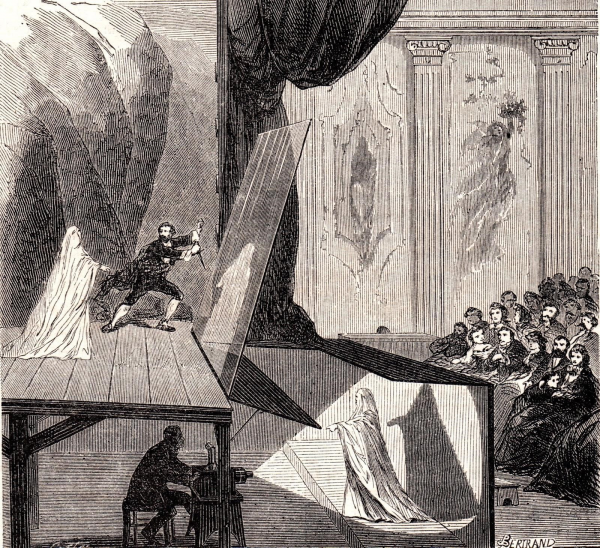
Almost as soon as Pepper unleashed this haunt on the world there were copycats. The Alexandria Gazette noted that another illusionist, Mr. King, attempted to undermine Pepper’s patent process by asserting that the technology was “not new.” The Gazette playfully concludes that anyone who can buy a plate of glass and has a place to set it can have a “ghost.”[2]
Spookiness for What Ails You
Audiences of this time would have been primed for such entertainment. For Victorians, “spooky season” was year-round. Reports of neighborhood hauntings, fictional ghost stories, and poems were printed extensively in newspapers at this time. Seances and spiritualism were on the rise, where practitioners claimed they could communicate with deceased individuals. These supernaturally-informed modes of entertainment are thought to be borne out of people of this era struggling to make sense of a rapidly changing world.[3] The Industrial Revolution had upended settlement patterns by encouraging people to relocate to manufacturing centers. Germ theory and other approaches to what is now referred to as “modern medicine” were emerging, and Darwin’s Theory of Evolution was published in 1859.
The Disappointing Ghost
So why then, in this generation of the creep-inclined, in a town such as Wheeling, did the Wheeling Intelligencer have such underwhelming things to say about their ghostly visit?
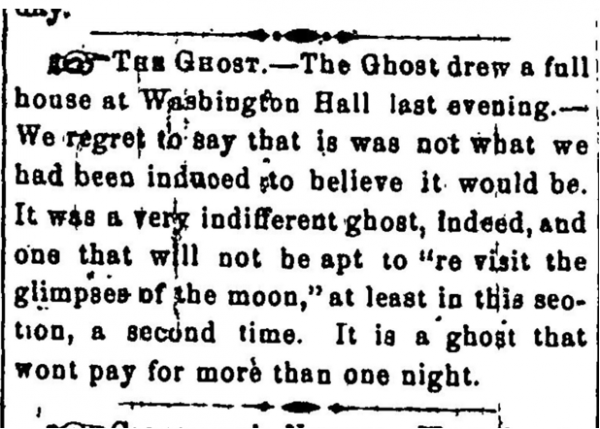
Apparently, there were multiple ghosts crisscrossing England soon after its debut in 1862. The Alexandria Gazette reported that Pepper was locked in patent battles with an imitator in England, so it’s likely there were folks conjuring up bootleg ghosts on the far shores of America. Folks looking for an exciting and flashy draw for their own vaudeville would be especially keen to incorporate whatever was new and exciting.
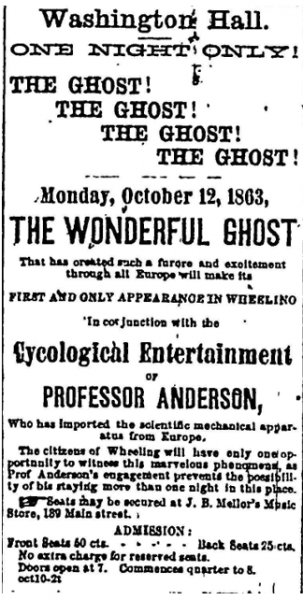
Often imitated, never duplicated, apparently. If the Wheeling Intelligencer was so underwhelmed by the ghost, even going so far as to claim that it wouldn’t pay for a second night, it’s interesting to see that the ghost indeed returns on New Years Day 1864. Goes to show that no amount of bad press can keep a ghost away.
• Kate Wietor is currently studying Architectural History and Historic Preservation at the University of Virginia in Charlottesville, Virginia. She spent one glorious year in Wheeling serving as the 2021-22 AmeriCorps member at Wheeling Heritage. Since moving back to Virginia, she’s still looking for an antique store that rivals Sibs.
References
[1] “Pepper’s Ghost – A Historical Overview.” Accessed October 19, 2021. https://www.ic3dsfx.co.uk/peppers-ghost-overview.
[2] The Alexandria Gazette 15 September 1863 (patent) [3] Cochrane, Kira. “Ghost Stories: Why the Victorians Were so Spookily Good at Them.” The Guardian, December 23, 2013, sec. Books.

